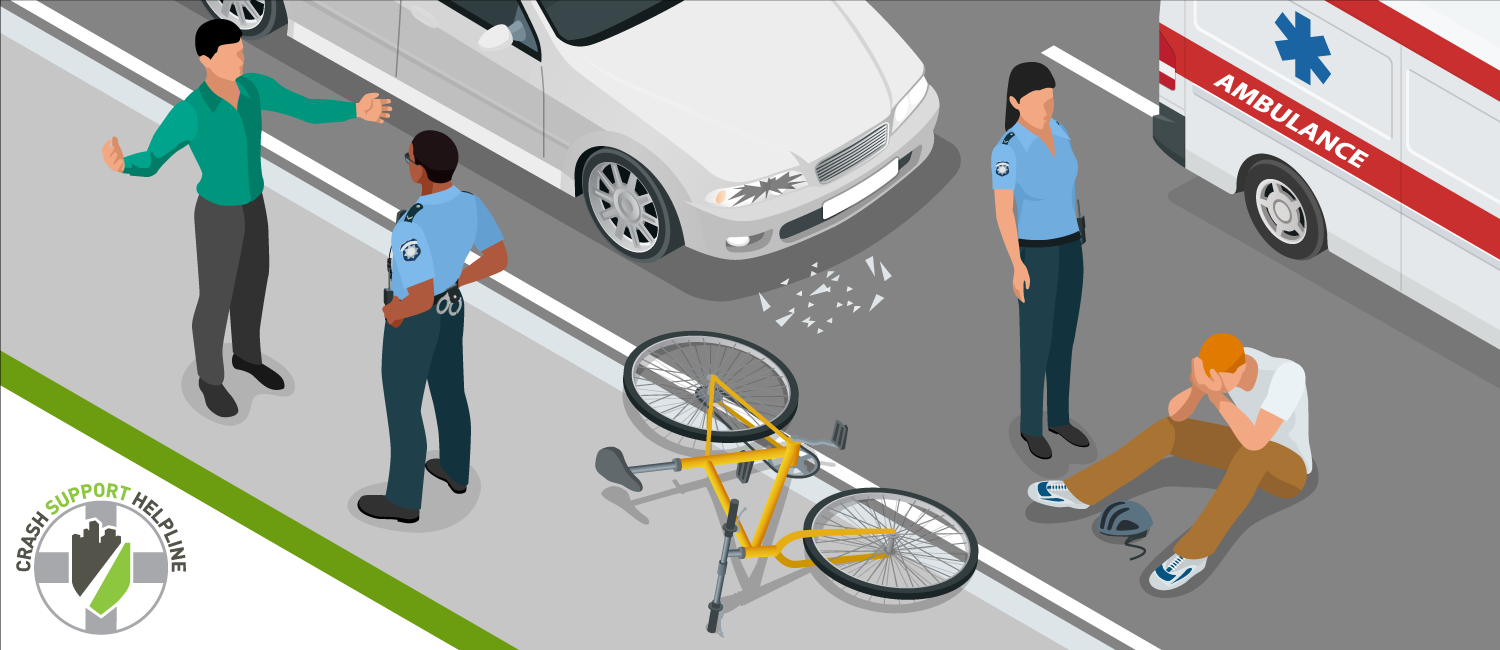About ten years ago, the Active Transportation Alliance launched its Crash Support Helpline to provide support and resources to people who have just experienced a crash on foot or by bike. According to deputy director Melody Geraci, it was established in response to a steady flow of calls to the office from people who had been in pedestrian or bike crashes and didn't know what to do.
“Originally, it was not just a phone hotline," Geraci said. "We also had a support group that would meet monthly for crash victims. We had a licensed clinical social worker who would lead that group, providing a safe place for people to talk about what they’d been through when the rest of the world didn’t believe them,” said Geraci.
In addition to the support group and hotline, Active Trans used to do courtroom advocacy, attending court hearings for crash cases on behalf of victims and their families. While some of this work has waned over the years, the crash support helpline has remained active.
The phone line is currently run by volunteers who answer the voicemail and email requests for help. Volunteers undergo a rigorous training on the basics of bike and pedestrian law, as well as learning active listening techniques to use when they talk to victims.
“It’s probably one of the most rewarding volunteer programs I’ve ever been a part of,” a Crash Support Helpline volunteer named Amanda told me. “Most people don’t know their rights after being in a crash. It’s great to have advocates telling them it’s not their fault and providing them with support.”
In recent years, the number of calls to the helpline had dwindled. Active Trans viewed this as an opportunity to reboot the helpline program to make it easier for crash survivors to access information. “How would a person who has just been in a crash look for help?" said Geraci. "It’s no longer necessarily by dialing a number, it’s Googling answers. That’s what inspired the development of the new website and having an interactive website where people can write in.”
Active Trans wanted the newly launched crash support website to complement their existing helpline rather than replace it, because not everyone has easy Internet access. The site includes useful information such as the right actions to take immediately after a crash, and a directory of lawyers specializing in bike and pedestrian crash cases, vetted by Active Trans.
Geraci said there are three goals for the relaunch. “The first thing is to get the information into the hands of more pedestrians. Almost all the calls we receive are queries from bicyclists.” She said that's because it's relatively easy to do outreach to cyclists via posters in bike shops or stickers on bike racks, but it's not as clear where to promote safety for pedestrians. “We know pedestrians are hit way more often."
Another goal is to help suburbanites get the info they need in the wake of crashes, since some of the most serious crashes are happening in the high-speed suburban arterials. That's complicated by the fact that there are dozens of municipalities in the region with their own ordinances and police departments.
The third goal is to get the information to the most at-risk populations, which include lower-income residents, people with disabilities, and seniors. Strategies to get the information out into different communities could include partnering with social service organizations and schools.
With the warm summer weather bringing more people out onto the streets to walk and bike, it's a good time for Active Trans to be relaunching their helpline and educating more people about how to stay safe and exercise their rights in the event of a crash.






